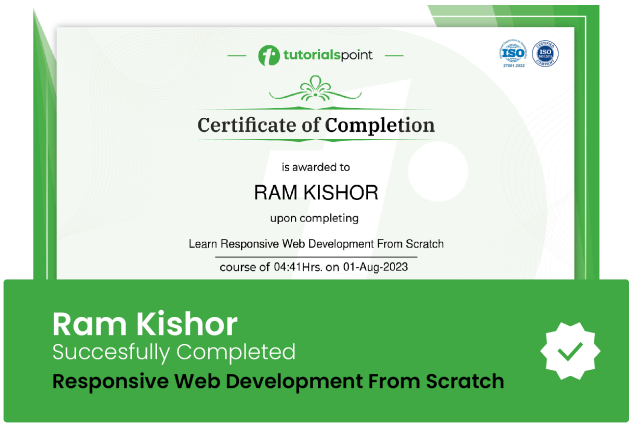The Power of the Montessori in Raising Children
The Power of the Montessori in Raising Children I Referral CPD platforms

Lectures -9
Resources -1
Duration -1.5 hours

30-days Money-Back Guarantee
Get your team access to 10000+ top Tutorials Point courses anytime, anywhere.
Course Description
Dr. Maria Montessori was one of the first female doctors in Italy in the late 1800s. she took care of the poor and children in the clinic where she worked. In one specific case she studied, she noticed that children were picking breadcrumbs because they suffered from sensory deprivation. To solve the problem Dr. Montessori began to educate children. She understood that medical education and medicines were inadequate for these children. Therefore, she gave her full attention to the philosophy of education, psychology, and anthropology. Later she was invited by the Italian state to open a nursing home in Rome for children whose parents were working. Finally, in 1907 she opened Case Dei Bambini (Children’s House) to provide education to low-income children in Rome. It didn't take long time for her work to attract attention and be heard internationally. Montessori method of education had spread to United States in early 1900s and became very popular. Dr. Maria Montessori continued her studies in the field of education until her death in 1952.
On the contrary to traditional education, Dr. Maria Montessori believes children needs freedom to develop their physical, intellectual, and spiritual parts. A freedom to be achieved through order and self-discipline is the must in Montessori philosophy. Contrary to popular belief, there are many rules in the Montessori philosophy that will benefit the child. For example, the child cannot take the presented activity outside the playground or eat standing up.
Compared to traditional education, Montessori is the only approach that fits every child because in the traditional method every single child should learn at the same time. However, Montessori method allows children to learn at their own pace. Montessori materials are placed on the shelves in order from easiest to most difficult. so that each child works at their own pace with material that is relevant to their immediate interests. Meanwhile, the teacher is in the position of an observer. if the teacher thinks the child has mastered the material, he or she will incorporate the subsequent material into the training.
While in traditional education only the adult affects the child, in Montessori education the child, the adult and the environment are in a dynamic relationship. The environment is arranged in such a way that the child can be interested, and the child learns in this way. The adult who regulates the environment observes the child and repeats the necessary adjustments.
Dr. Maria Montessori argues that the purpose of the Montessori education is not to fill the child with real information, but rather to support his natural desire to learn.
Montessori education and philosophy is not only to be applied in schools, but also in our homes we give our children specificities and set limits so that they can make discoveries.
Who this course is for:
- Childhood Specialists
- Parents
- Preschool Teachers
- Early Childhood School Program Developers
Goals
What will you learn in this course:
Know the brief history of Montessori
Understand the definition of Montessori and the difference between traditional education and Montessori
10 Basic Principles of Montessori
Montessori mobiles
Montessori Activities
Designing Montessori Homes
Setting Rules in the Montessori Approach
Teaching Children about Emotions
Praise and Labelling
Daily Routines in Montessori
Prerequisites
What are the prerequisites for this course?
No

Curriculum
Check out the detailed breakdown of what’s inside the course
Giriş
9 Lectures
-
Introduction 06:22 06:22
-
Basic Principles 09:41 09:41
-
Montessori Mobiles 04:21 04:21
-
Montessori Activities 07:39 07:39
-
Designing Montessori Home 05:52 05:52
-
Setting rules in the Montessori approach 09:15 09:15
-
Teaching Children About Emotions 09:01 09:01
-
Mathematics-montessori 37:49 37:49
-
Montessori-screen 14:55 14:55
Instructor Details

?lbey UCAR
eCourse Certificate
Use your certificate to make a career change or to advance in your current career.

Our students work
with the Best


































Related Video Courses
View MoreAnnual Membership
Become a valued member of Tutorials Point and enjoy unlimited access to our vast library of top-rated Video Courses
Subscribe now
Online Certifications
Master prominent technologies at full length and become a valued certified professional.
Explore Now



 Updated on Apr, 2024
Updated on Apr, 2024
 Language - English
Language - English